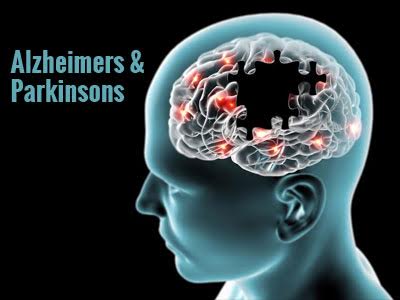- Home
- Editorial
- News
- Practice Guidelines
- Anesthesiology Guidelines
- Cancer Guidelines
- Cardiac Sciences Guidelines
- Critical Care Guidelines
- Dentistry Guidelines
- Dermatology Guidelines
- Diabetes and Endo Guidelines
- Diagnostics Guidelines
- ENT Guidelines
- Featured Practice Guidelines
- Gastroenterology Guidelines
- Geriatrics Guidelines
- Medicine Guidelines
- Nephrology Guidelines
- Neurosciences Guidelines
- Obs and Gynae Guidelines
- Ophthalmology Guidelines
- Orthopaedics Guidelines
- Paediatrics Guidelines
- Psychiatry Guidelines
- Pulmonology Guidelines
- Radiology Guidelines
- Surgery Guidelines
- Urology Guidelines
New therapy for Alzheimers and Parkinsons in the offing

London : Scientists have discovered a new genetic disease which causes neuro-degeneration, an advance that may help develop new therapies for other brain ageing conditions such as Alzheimers and Parkinsons.
Researchers from the University of Sussex in the UK have discovered the disease, ataxia oculomotor apraxia type XRCC1, which is caused by a genetic mutation that disrupts the repair of our DNA.
They found that when single strands of DNA are damaged, a genetic mutation in a gene called XRCC1 causes a vital DNA-repairing enzyme (known as PARP1) in our bodies to over-activate.
In people suffering from the disease, scientists found the speeding up of this key enzyme leads to death of brain cells.
Single strand breaks are one of the most common types of DNA damage and researchers believe it is possible the discovery of this new genetic disease could be important for scientists researching other rare DNA repair related diseases.
The team also believe the findings could eventually prove significant for researchers looking into more common neurodegenerative and brain ageing conditions, such as Alzheimers, Huntingtons and Parkinsons.
"Discovering this new disease and its cause is a huge step towards developing drug-based therapies for other rare neurodegenerative conditions," Keith Caldecott, professor who led on the study from University of Sussex.
"Drugs which target this key DNA repairing enzyme in the right way, could prove vital for treating people suffering from diseases caused by the over-activation of this protein it is now crucial we determine what diseases these are," said Caldecott.
"More research needs to be done but it is also possible the cause of this newly discovered condition could contribute to the death of nerve cells in people suffering from diseases such as, Alzheimers, Huntingtons and Parkinsons," said Caldecott.
The study was published in the journal Nature.

Disclaimer: This site is primarily intended for healthcare professionals. Any content/information on this website does not replace the advice of medical and/or health professionals and should not be construed as medical/diagnostic advice/endorsement or prescription. Use of this site is subject to our terms of use, privacy policy, advertisement policy. © 2020 Minerva Medical Treatment Pvt Ltd